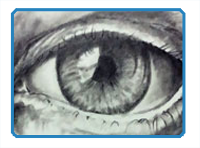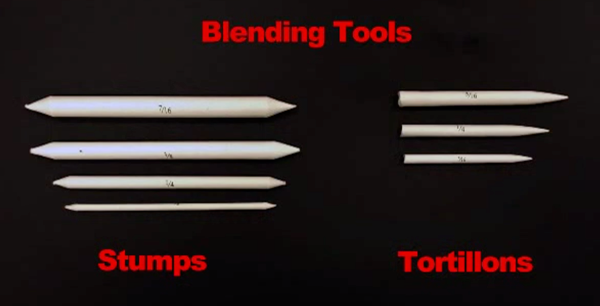
By Matt Fussell
Blending tools come in a variety of forms for a variety of applications. These tools are used to move material around on a drawing surface. When the material is spread on the surface using a blending tool, the value can be manipulated. Smoother transitions between darks and lights can be achieved and different textures can be created.
While blending tools can be used with just about any medium, certain drawing media are better suited for their use. Graphite, charcoal, and soft pastel are the most popular drawing mediums in which blending tools are used, although some artists use them other media such as conté and colored pencils.
Some artists use their fingers to spread the medium, but many argue that blending tools are much better. Your fingers contain oils that can contaminate the medium, leading to smudges or areas that are difficult to erase. Using a blending tool prevents the oils from mixing with the medium.

The most popular tools for blending drawing media are blending stumps and blending tortillons. Blending stumps are compressed cylinders of paper that come to a point at the end. They come in a variety of widths, but the tips are consistent in sharpness. Blending stumps typically have two pointed ends and when one end becomes dirty, the other can be used. Blending stumps are very inexpensive and can be disposed when they become too dirty to use. However, rubbing the soiled end against sandpaper will clean them to a degree.
It should come as no surprise that many artists simply make their own blending stump or tortillon. Small strips of paper can easily be rolled up and create a suitable blending tool for drawing. However, the manufactured tools do perform better.
Here's a look at using blending stumps in a drawing using graphite. The following video is excerpts of a live demonstration. The full 1 hour video is available to members here.
Here are some more art lessons that you may like...